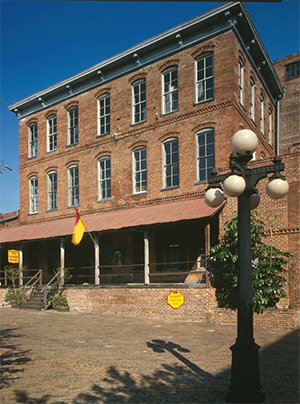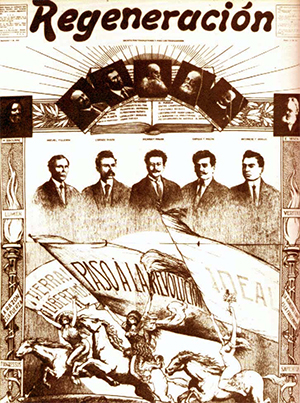News & Events
Preserving U.S. Latino culture -- one text, one historic site at a time
National Parks Service commissions book by Dr. Nicolás Kanellos and other Latino scholars
![Jose Marti [centered] (University of Southern Florida)](latino-image-2.jpg)
Jose Marti [centered] (University of Southern Florida)
Facts, quite often, are unwelcome. Truth can disrupt a narrative, revealing what seemed accurate for centuries to always have been false.
When the National Park Service commissioned Latino scholars from across the nation to write a book of essays, The Making of the United States: American Latino Theme Study, identifying “the missing links” connecting American Latino people, sites and history to the broader American narrative, the writers had to grapple with how much of the truth should be told.
“If I tell the true story, if I say the hard things, the book could be cancelled. That happened to me before with a project for the Smithsonian,” said Nicolás Kanellos, Brown Foundation Professor of Hispanic Studies and a contributor to the book.
“From the very beginning of this project one of the big questions was how honest should we be because, after all, this is coming out from the government, the Department of the Interior, and some of those truths, some of that history isn’t so pretty,” said Maggie Rivas-Rodriguez, associate professor of journalism at the University of Texas at Austin, another contributor.

Vincente Martinez Ybor’s Cigar Factory,site of Marti’s “Cuba Libre”
speech,Tampa, Florida (Library of Congress);
She credited Dr. Kanellos with making the strongest case for the scholars to make the most of this opportunity by sharing as many facts as possible.
“He said if we’re not honest, we lose our credibility and legitimacy for everybody and we never accomplish what we are trying to accomplish,” Dr. Rivas-Rodriguez said.
So Dr. Kanellos’ essay “Envisioning and Re-visioning the Nation: Latino Intellectual Thought” begins with this:
Latinos have resided in North America since before the arrival of northern Europeans at Jamestown and Plymouth. They already lived in lands that became English colonies and later the states of the early American Republic.
“When you talk about becoming part of the national fabric and the narrative and the identity of the United States, this is how you start,” Dr. Kanellos said.
The book, scheduled to be published and released online before the end of the year, is part of a commitment the National Park Service made in 2011 to better integrate American Latino heritage into the story of the United States of America as told through national historic landmarks.
At the time the commitment was made, U.S. Interior Secretary Ken Salazar noted that less than 3 percent of the national landmarks are designated as significant to women, Latinos, African Americans or other members of minority groups.
The National Park Service promised to recommend and evaluate new sites significant to Latino heritage as possible national historic landmarks and to expand the conversations and curricula interpreting the history of existing Latino heritage sites. The Service also agreed to commission the book of essays.
To aid in this work and consult with its own advisory board, the National Parks Service assembled the American Latino Heritage Scholars Panel, which includes Dr. Kanellos, director of the Recovering the U.S. Hispanic Literary Heritage Project.

Cover of Regeneracion newspaper, September 1910 (Pitzer College)
“This is a canonizing moment,” Dr. Kanellos said. “This is when the official institutions of the nation recognize Latino individuals and culture as part of the national narrative and signify it by establishing monuments, publishing books, building exhibits that say, yes, these, in fact, are Americans.”
This fall, the César E. Chávez National Monument was established at Nuestra Señora Reina de la Paz in Keene, California, Chávez’ home and the headquarters of the United Farm Workers of America (UFW) since the early 1970s when Chávez was its president.
Last month, Dr. Kanellos convened the recovery project’s biennial conference in Houston. More than 200 scholars participated in the two-day meeting to discuss efforts to locate, preserve and disseminate written forms of Hispanic culture produced in the United States since colonial times until 1960.
In addition to leading the recovery effort, Dr. Kanellos is director of Arte Público Press, the nation's largest and most established publisher of contemporary and recovery literature by U.S. Hispanic authors.
- Shannon Buggs